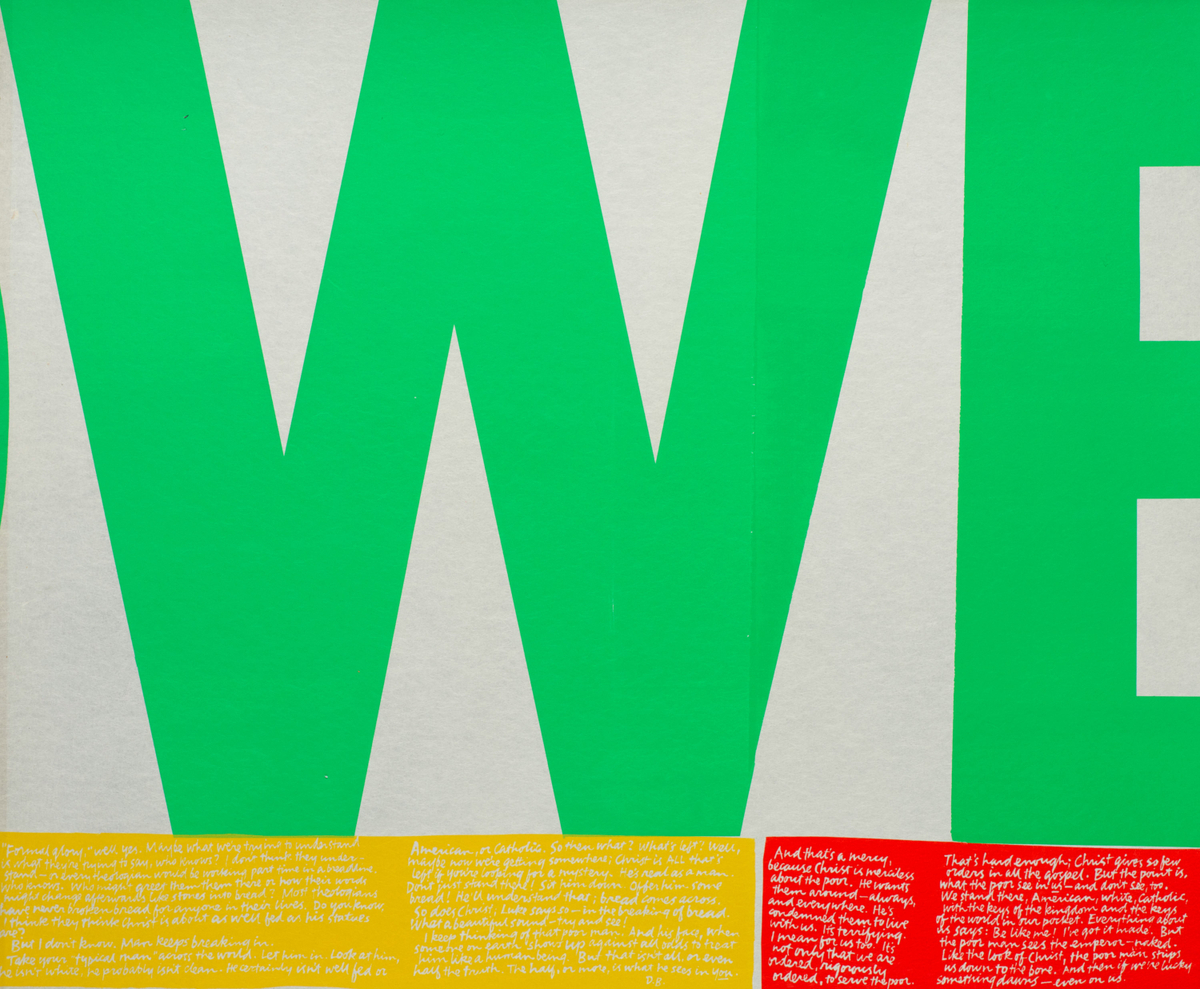Transcribed Text
Transcribed Text
W E ��"Formal glory" well yes. Maybe what we're trying to understand is what they're trying to say, who knows? I don't think they understand--or every theologian would be working part time in a breadline. Who knows who might greet them there or how their words might change afterwords like stones into bread? Most theologians have never broken bread for anyone in their lives. Do you know, I think they think Christ is as well fed as his statues are?�But I don't know. Man keeps breaking in.�Take your typical man "across" the world. Let him in. Look at him, he isn't white, he probably isn't clean. He certainly isn't fed or American, or Catholic. So then what? What's left? Well, maybe now we're getting somewhere; Christ is ALL that's left if you're looking for a mystery. He's real as a man. Don't just stand there! Sit him down. Offer him some bread! He'll understand that; bread comes across. So does Christ; Luke says so--in the breaking of the bread. What a beautiful sound--try and see!�I keep thinking of that poor man. And his face, when someone on Earth shows up against all odds to treat him like a human being. But that isn't all, or even half the truth. The half, or more, is what he sees is you.�D.B.�And that's a mercy, because Christ is merciless about the poor. He wants them around--always, and everywhere. He's condemned them to live with us. It's terrifying. I mean for us too. It's not only that we are ordered, rigorously ordered, to serve the poor. That's hard enough; Christ gives so few orders in all the gospel. But the point is, what the poor see in us--and don't see, too. We stand there, American, white, Catholic, with the keys of the kingdom and the keys of the world in our pocket. Everything about us says: Be like me! I've got it made. But the poor man sees the emporer--naked. Like the look of Christ, the poor man strips us down to the bone. And then if we're lucky something dawns--even on us.

